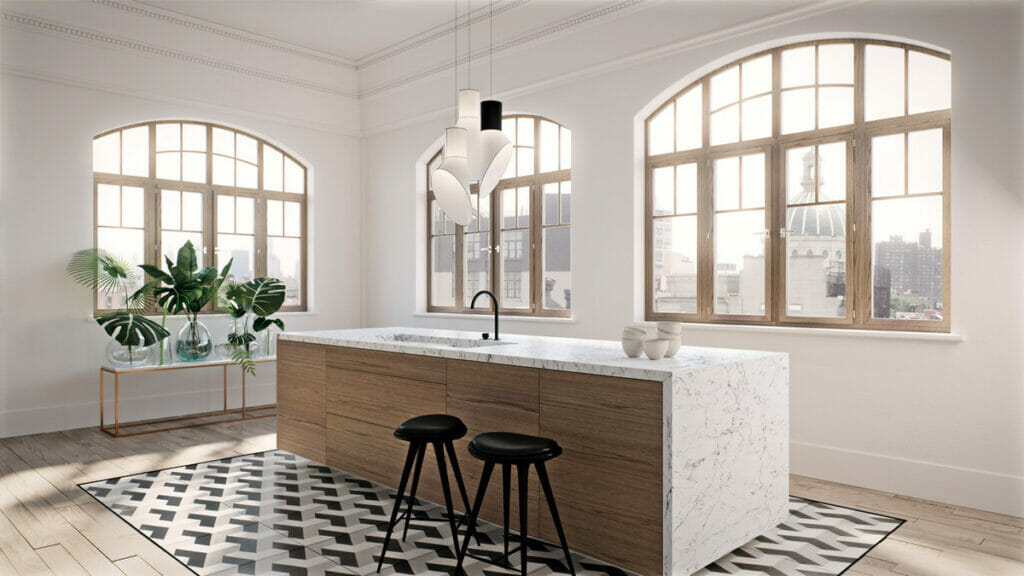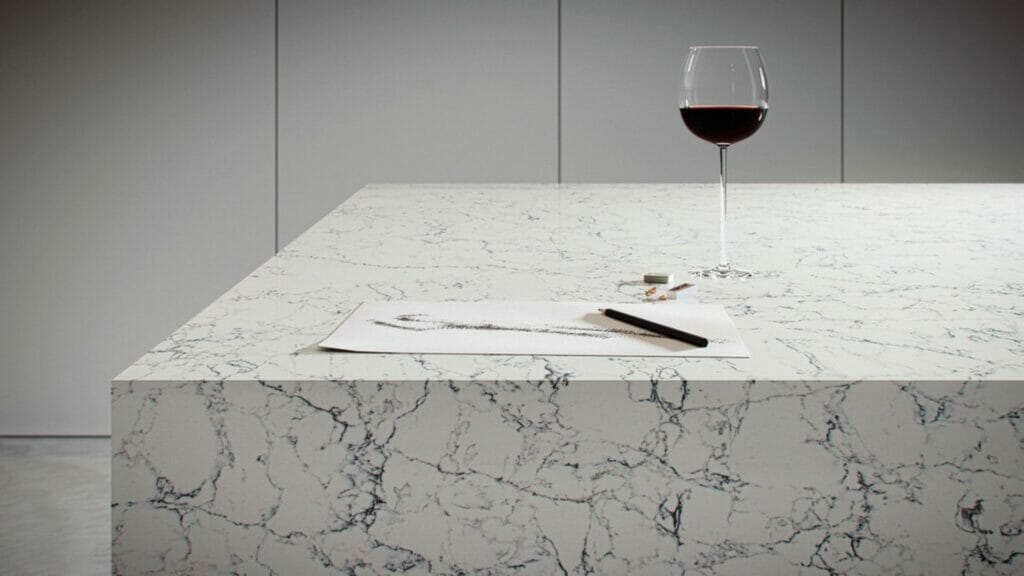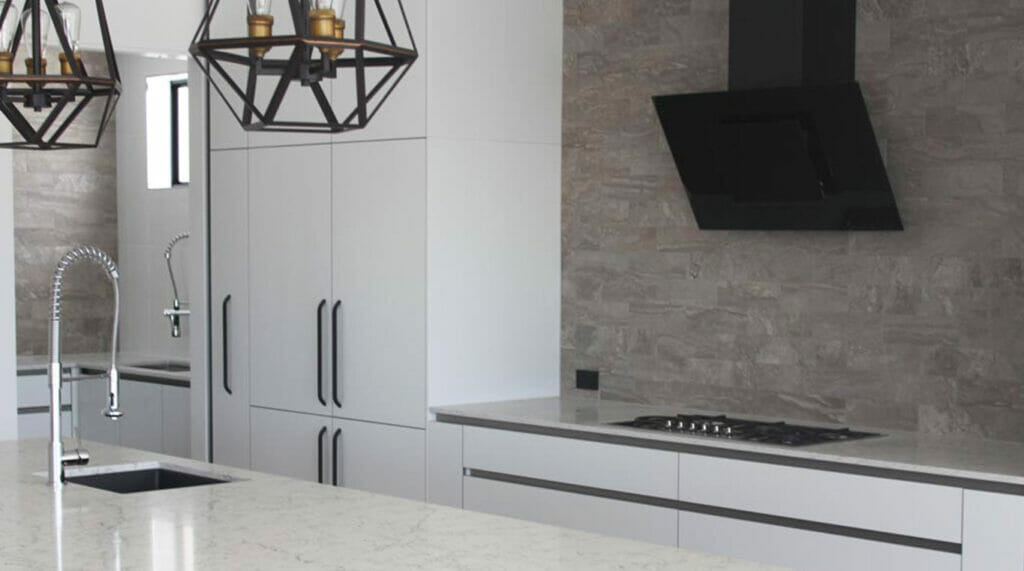Is Quartz Countertop Sealer Necessary?
5 min read
Quartz countertops are constructed of very robust materials. As a result, unlike natural stones like granite or marble, they do not have brittle characteristics.
It is generally not necessary to seal quartz countertops. Caesarstone quartz countertops are made of a mixture of natural minerals, and the manufacturing process creates a permanent seal on their surfaces. As a result, quartz surfaces are solid, long-lasting, and attractive countertops. Marble, limestone, and granite countertops, on the other hand, must be sealed due to their porous nature.

What Happens When You Seal a Quartz Countertop?
Quartz is nonporous in nature and will not allow the sealant to penetrate. As a result, if you spray some fluid on the countertop, the sealant will rest on top, creating a layer of liquid.
Lack of Porosity in Quartz
When a sealant is applied to natural stones like marble and granite, it is absorbed to seal the pores and prevent water from seeping through. Quartz is low maintenance, as it does not need countertop sealing.
Quartz counters do not need sealing due to their lack of porosity. Liquids and stains cannot penetrate non-porous materials because they have a built-in seal. Natural stone countertops, such as polished marbles or granite, have pores and small splinters that require sealing on a regular basis.
Why Don’t You Have To Seal Quartz Countertops?
As mentioned above, certain stone countertops, such as granite and marble, need to be sealed. That’s because the stones are all-natural and have pores through which liquid can pass. Physical wear and tear over time can expose the pores even more in the case of such stones. Quartz is a type of stone, but it is not the same as quartz countertops.
It is Sturdy and Not Breakable
Quartz is a construction material that is used to make countertops. Quartz minerals are combined with silicon dioxide, coloring agents, and bonding resins for this purpose.
During the fabrication process, over 90% of the material used is natural quartz. The various elements of the quartz countertop function together to be much stronger than natural quartz.
Formation of a Natural Seal
A natural seal is created towards the end of the quartz countertop fabrication process. Quartz countertops, therefore, do not need the same level of sealing and resealing as granite or marble countertops.

How To Keep Quartz Countertops Protected Without Sealing
Clean Spills Immediately
It’s easy to keep this low-maintenance countertop clean. To clean up regular spills or messes, all you need is a damp cloth and gentle dish soap. Though water shouldn’t be left on marble, it’s fine to place a damp towel over a stubborn mark on your quartz to loosen the stain before wiping it down with a damp sponge and dish soap.
Chemicals Should Be Avoided
Harsh chemicals or something abrasive should never be used on quartz because they can etch the surface. Steer clear of the following:
Furthermore, there is no need for routine maintenance. Waxing or polishing your countertop will never be necessary because it will never be sealed.
Side-effects of Sealing Your Quartz Countertop
Despite the many benefits of sealing your quartz countertop, it isn’t always the right option. Quartz doesn’t require a sealant. Using one is a waste of time and money and could even damage your countertop.
Quartz isn’t the same as other popular countertop materials and sealants have their drawbacks. A quartz countertop is durable and beautiful without a sealant.
The Sealant Goes Unabsorbed
Quartz countertops, unlike granite or marble, do not absorb stains and spills. Although this makes them more stable for daily use, it also makes them less absorbent of sealants.
A quartz countertop lacks the porous structure needed for proper sealant absorption. Since the sealant isn’t absorbed, it won’t go anywhere except your countertop’s surface.
Consider the possible consequences before applying something to the surface of your countertop. Some sealants can adhere well to your countertop, whereas others may not. The wrong sealant could actually cause more harm than good.

Advantages of Not Sealing Quartz Countertops
The most significant benefit of not sealing a quartz countertop is that it is immediately usable. The manufacturing process creates a material that is sturdy and durable with an inherent and long-lasting seal.
It used to be difficult to find a countertop that was both stylish and easy to clean. Quartz countertops are not only elegant but low-maintenance and easy to clean with no need for the use of a sealant.
Conclusion
Quartz countertops do not need sealing. There are several drawbacks to adding an extra layer. Before deciding whether or not to seal your quartz countertop, weigh the above-mentioned benefits and drawbacks of both scenarios.
{{ subtitle }}
{{ i.desc }}
{{ subtitle }}
{{ subtitle }}